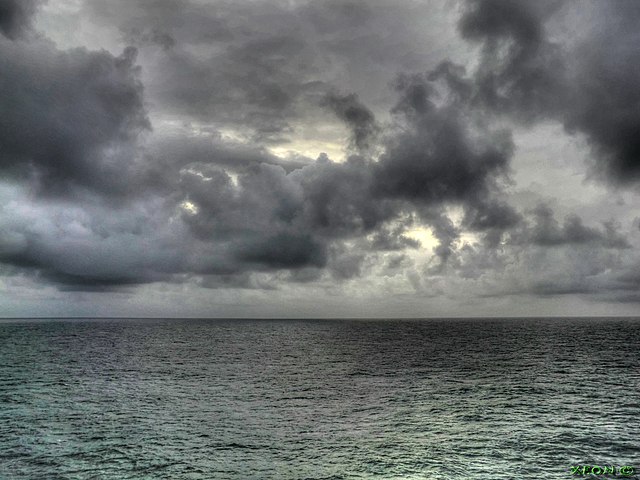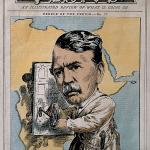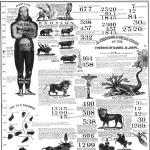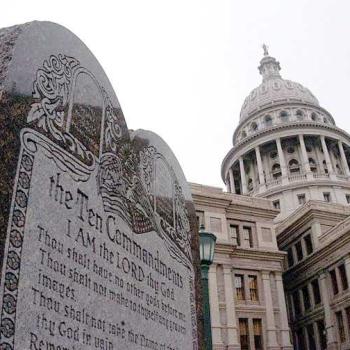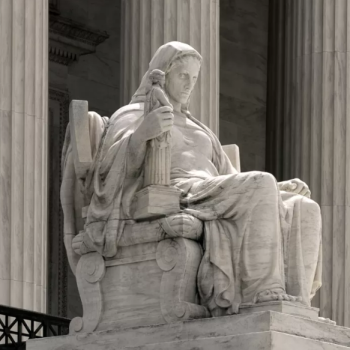The recent solar eclipse visible in North America inspired much social media commentary about the Rapture. And what is the Rapture? Most commonly it’s the belief that some day faithful Christians, both living and dead, will arise in the air to go to Paradise to be with Jesus. The unfaithful will be left on the earth to suffer the Great Tribulation, a time in which evil will spread and the Antichrist will rule. There are other proposed scenarios, including one in which the Rapture happens after the Tribulation. And opinions vary on how this relates to the Second Coming, when Jesus will return to establish his Kingdom on the earth. That might happen after the Rapture/Tribulation. Or maybe the world will just end.
I’ve come to realize that a lot of folks with, shall we say, less than a sustained interest in Christian theology think that the Rapture is a universally held Christian belief. It is not. In fact, it is attributed to a 19th century Anglo-Irish Bible teacher named John Nelson Darby. In the 20th century belief in the Rapture became popular among some American evangelicals, although at this point it may be as much a folk belief as a doctrine. I understand Rapture theology has few followers outside North America.
Christianity is an escathalogical tradition that looks to the return of Jesus and an eventual end of days, and much of its teachings are about preparing for those events. The various divisions and denominations of Christianity have developed a variety of teachings about how the end will take place. Rapture theology is just one view. And if you wade into the world of Rapture theology you find several different tribes organized around terms like “dispensational premillennialists” or “post-millennialists” and even “a-millennialists.” (Millennialism refers to the belief that when Jesus returns he will reign for a thousand years.) This post will not try to sort this out. Some other time, maybe. Here we’re just going to look at the Rapture itself..
The Rapture: In the Beginning
John Nelson Darby (1800-1882) was originally a curate in the Anglican Church of Ireland. He broke with the Anglican church when the Bishop of Dublin declared that converts must swear allegiance to George IV as the rightful King of Ireland. Darby later became a founder of a Nonconformist movement of free churches called the Plymouth Bretheren. Darby is credited with proposing the pre-Tribulation Rapture theory. This theory says that Jesus secretly will remove the faithful from the earth by gathering them up into the air just before the Tribulation begins. Later Jesus will return to earth to establish his Kingdom.
The basic idea of rising in the air comes from 1 Thessalonians 4:16-17, “For the Lord himself shall descend from heaven with a shout, with the voice of the archangel, and with the trump of God: and the dead in Christ shall rise first: Then we which are alive and remain shall be caught up together with them in the clouds, to meet the Lord in the air: and so shall we ever be with the Lord.” (King James Version) So it can’t be said that Darby was the first who thought of it. Darby’s contribution was to fold the rising of the quick and the dead into a larger proposal called “dispensationalism.” Darby interpreted biblical history as a series of “dispensations,” or periods in which God dealt with humankind in distinctive ways. Darby expected that some day God will snatch away the faithful secretly, so that they all will just seem to disappear. And the non-faithful will be left behind to suffer the Tribulation.
This was a very controversial idea when Darby proposed it. And during his lifetime, not many people adopted it. But in the late 19th century some influential American Christian leaders took an interest in Darby’s ideas. Among these was Dwight Lyman Moody (1837-1899). Moody was an enormously influential preacher and publisher who also founded the Moody Bible Institute. His mark on American Christianity can be felt to this day. Soon Darby’s ideas were spreading in the more conservative circles of North American evangelicalism.
The Rise of Rapture Lit
By the beginning of the 20th century novelists were writing Rapture fiction. One of the earliest known Rapture novels, published in 1905, was titled Titan, Son of Saturn. The author was an Ohio physician named Joseph Burroughs, who wrote in the preface that the character of Titan was the Antichrist, “a young Greek, who is to unite the radical Socialists and lead them in a world-wide effort to destroy the Christian Church.” I understand that much of the dialogue in the book was pulled from the New Testament.
Some decades and many Rapture-themed potboilers later, authors Tim LaHaye and Jerry Jenkins began publishing the bestselling Left Behind series. The 16-book series, published between 1995 and 2007, focuses on the post-Rapture Tribulation. (The first novel begins when several plane passengers suddenly vanish, leaving their clothes and personal items behind.) The books have sold many millions of copies and have been made into five motion pictures. They’ve also been adapted into graphic novels and video games. Many actual theologians have complained that Left Behind makes a hash of biblical revelation, but at this point it’s likely more people are familiar with Left Behind escathalogy than they are with any officially sanctioned version.
The Rapture and Popular Culture
The Left Behind films were not the first to depict the Rapture. A short film called The Rapture, produced in 1941, appears to have been the first. In the style of a news documentary, The Rapture shows scenes of trains suddenly without conductors and cradles suddenly without babies. As people disappear, those left behind are confounded. Letters appear in the sky asking, “Are you ready?” The Rapture was a big hit at churches and Christian youth programs for many years.
There also was a low-budget film called A Thief in the Night (after 1 Thessalonians 5:2) released in 1972. The film’s protagonist is a newlywed woman named Patty who wakes up one day to find her husband missing, because he was Raptured. Poor Patty is left behind to deal with the horrors that follow. I don’t believe The Rapture was ever shown in theaters, but it was a smash hit as a video rental. By 1984 it reportedly had grossed $4.2 million.
And long before Left Behind there was a popular Christian pop song called “I Wish We’d All Been Ready.” This was originally recorded in 1969 by Christian rock artist Larry Norman. The refrain: “There’s no time to change your mind / The Son has come and you’ve been left behind.”
